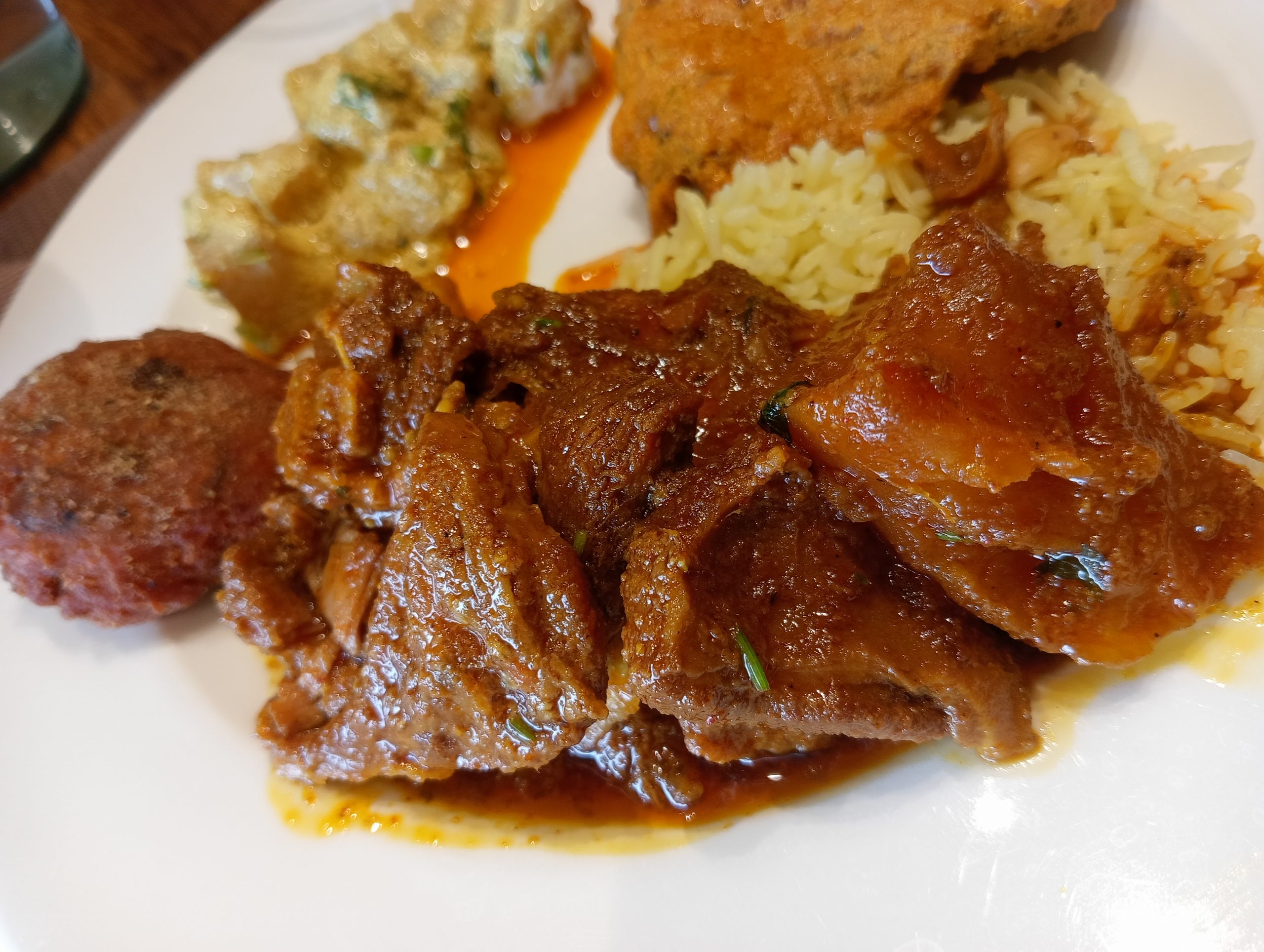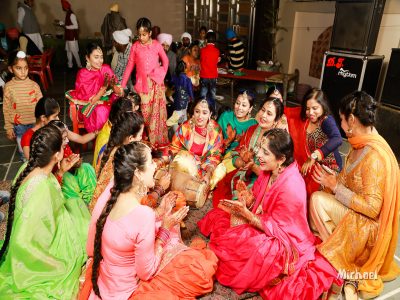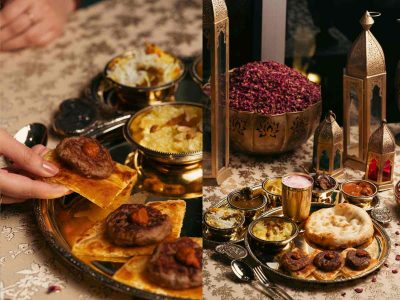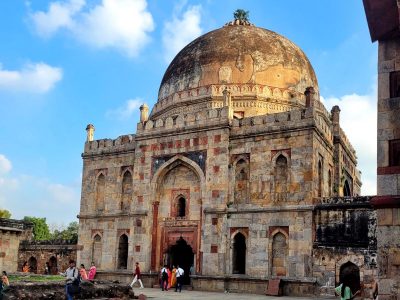Bengalis share an inseparable bond with food, often donning their finest attire for a spontaneous restaurant outing. This sentiment of food as a cultural cornerstone is amplified during Poila Baisakh, the Bengali New Year, where the aroma of traditional delicacies wafts through the air, evoking nostalgia and anticipation.
Recognising the profound connection between Bengalis and their gastronomic traditions, Regenta Suites in Gurugram took it upon themselves to infuse the spirit of Noboborsho into their offerings. With a sumptuous spread meticulously curated to tantalise tastebuds and ignite nostalgia, the hotel embarked on a journey to celebrate the Bengali New Year in style.
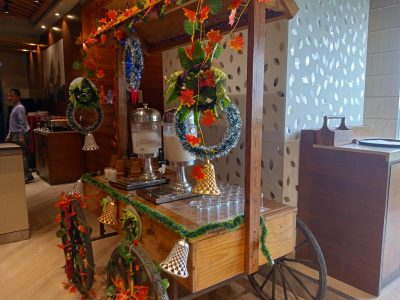
Sumit Ghosh, the General Manager of Regenta Suites Gurugram, expressed the motivation behind this culinary extravaganza.
“Gurugram hosts a sizeable Bengali community, yet the local dining scene often overlooks the essence of our cuisine. We saw an opportunity to not only celebrate Poila Baisakh but also to showcase our own culinary prowess,” he shared.
Poila Baisakh (the first day of the Bengali calendar) was celebrated on April 14. It’s celebrated with great pomp in both West Bengal and Bangladesh.
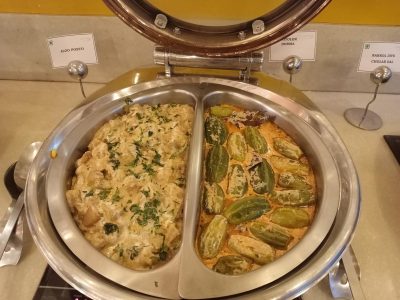
On this day, people clean their homes, take a ritualistic bath, and offer prayers to God and ancestors before putting on their new clothes. Alongside, they also organise an extensive lunch to enjoy with family and friends.
The menu at Regenta Suites was expansive. From Koraishutir Kochuri (a fried bread with a green peas stuffing), Aloo Posto (potato with poppy seeds) to Aloo Diye Mangsho (goat curry with potatoes) — there was everything that should have been there. One missing item, however, was Mishti Doi, ubiquitous to Bengali festival spreads.
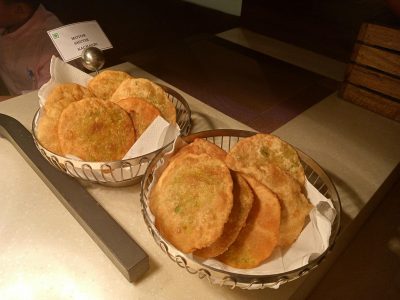
The premium quality mutton pieces, typically chopped the Bengali way, were the scene stealer. Usually, in Bengali food festivals in Delhi-NCR, this style of mutton pieces is not found.
“The secret lies in the balance of tender meat, fat, and bone pieces, ensuring that the gravy oozes more juices and one gets a symphony of flavours in every bite. You need someone from the community to guide the team of chefs here, ideally,” he said.
The Mangshor Jhol aka Bengali mutton curry is a classical comforting light curry prepared with mutton and potato chunks. A Bengali occasion is never complete without fish and mutton curry.
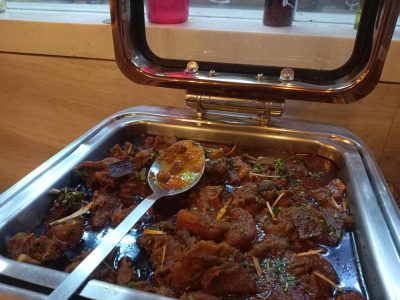
At the vegetarian buffet, there were Koraishutir Kochuri, Basanti Pulao, Aloo Posto, Veg Chop, Potoler Dolma (stuffed pointed gourd), Narkel Diye Cholar Daal (lentils with coconut cubes), Beguni (brinjal fritters), Dhokar Dalna (a curry made of lentil cakes) and Shukto (a bitter summer vegetable curry).
Among the wide range of meat and fish items, there were chicken soup, fish cutlet, murgir jhol (chicken curry), shorshe maach (fish in mustard curry), bhetki paturi (Bhetki fish cooked in mustard sauce inside banana leaves and mutton curry.
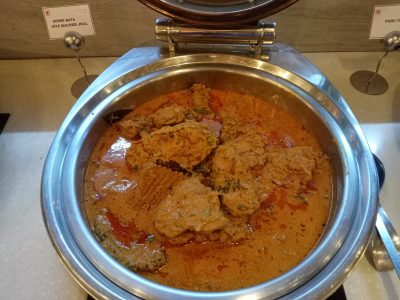
While one had to wait for their turn behind a long queue in the non-veg section, the vegetarian side remained largely empty. However, the Kochuri and Pulao had many takers.
While certain items, such as the Aloo Posto and the fish cutlet that was a bit chewy and less flavourful, left scope of improvement, the Koraishutir Kochuri and Mangsho were bang on. The Shorshe Maach had the necessary mustard induced pungency, but the fish was over fried, bringing the discourse back to the East and West Bengal style of cooking.
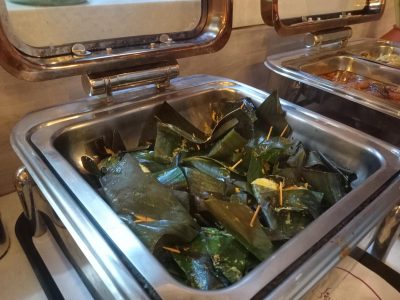
“Bengalis from East Bengal (now Bangladesh) like their fish lightly fried as they enjoy the original flavour of it. But on this side of the border, Bengalis prefer, in fact, only fish that is fried well. We have more customers from West Bengal so we need to keep their palate in mind. The same with the Aloo Posto. That side of Bengal likes it dry, whereas this side likes it in curry,” said Ghosh.
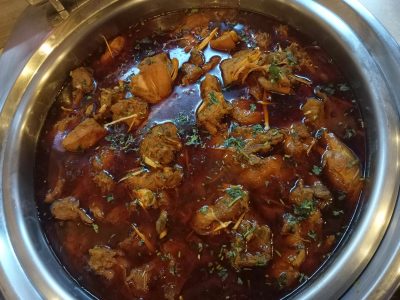
To end the extravagant meal, there was Kaalo Jam (Kaala Jam, a variant of Gulab Jamun), Roshogolla, and Payesh (kheer).
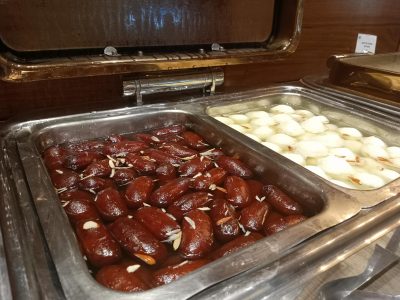
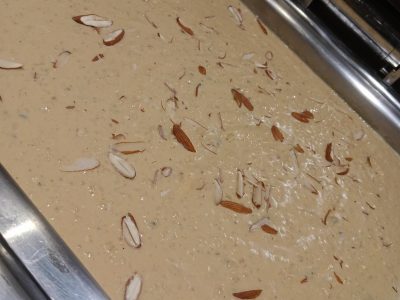
Throughout the event, glimpses of cotton industry, weaving of sarees, and visuals of Kolkata were constantly played on television — another striking effort to reflect the community’s culture and make people feel at home.
Overall, Regenta Suites’ Poila Baisakh food festival was a good attempt in bringing out the richness of the community’s cuisine.

